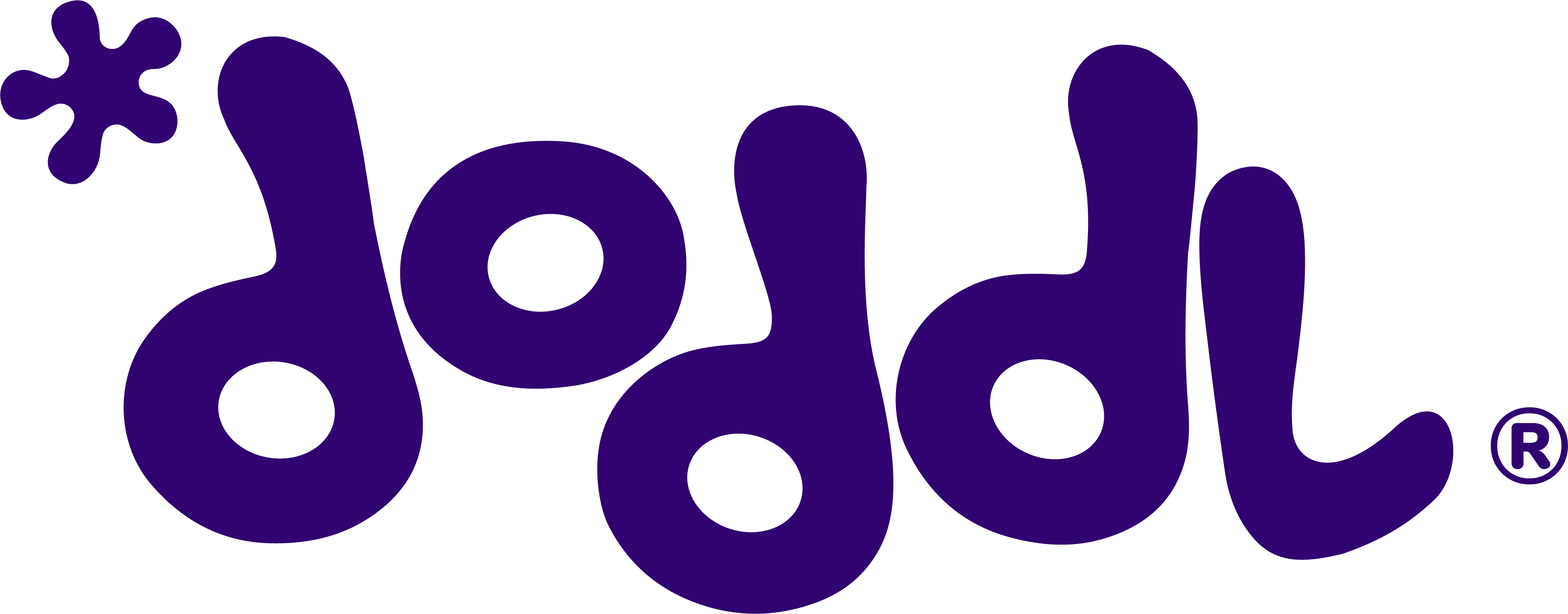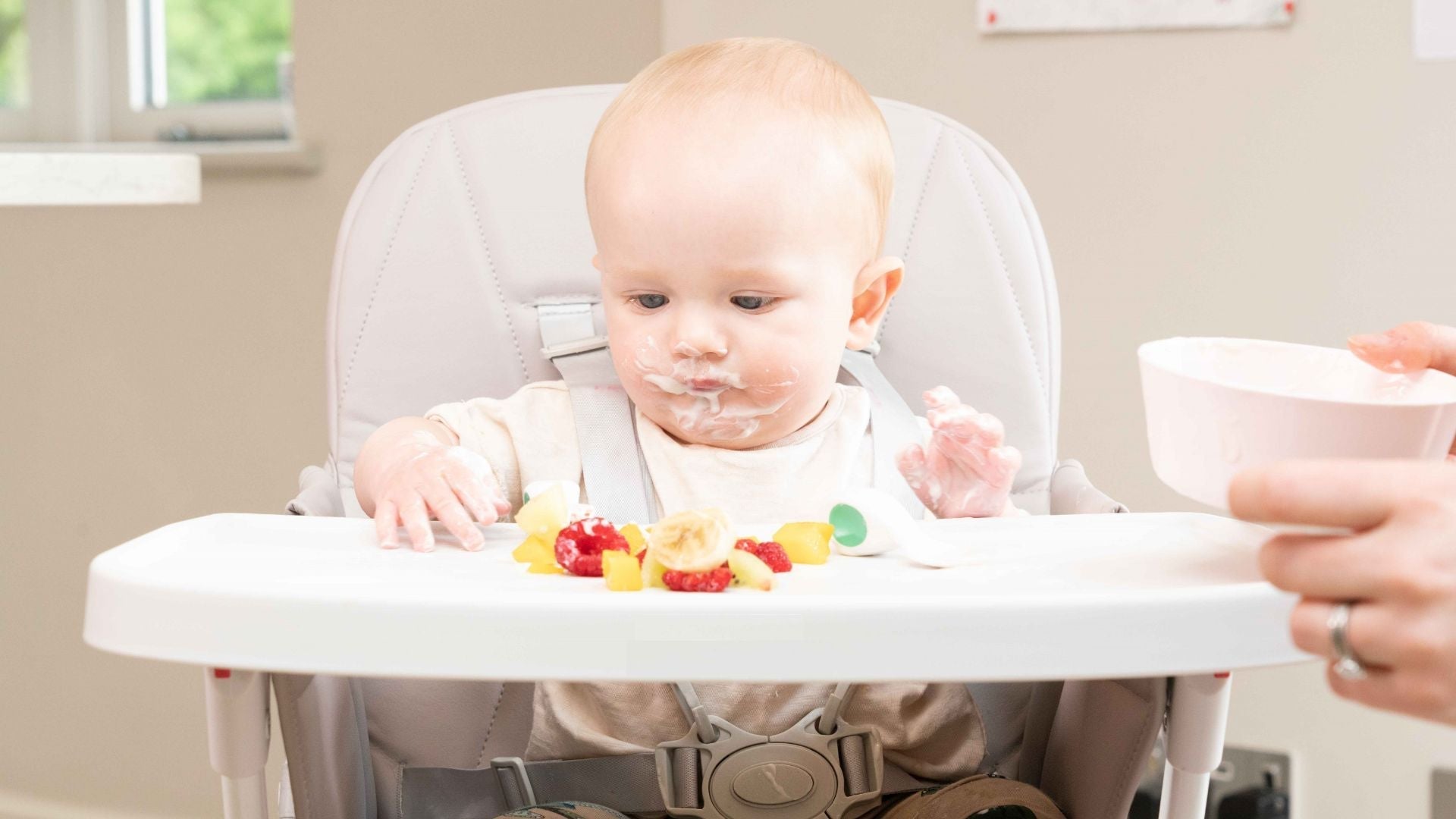Ah, the great baby food debate! As if new parents didn't have enough on their plates (pun intended), along comes the question of whether to whip up homemade purées or reach for the convenience of shop-bought jars. If you're feeling torn between channeling your inner chef and embracing the ease of ready-made options, don't worry – you're in good company! We're here to help you navigate this culinary conundrum with a balanced look at both options.
In this guide, we'll explore the benefits and challenges of homemade and shop-bought baby food, with a dash of real-talk and a generous helping of support. Because whatever your meal of choice, we're all in this parenting adventure together.
Benefits of homemade baby food

1. Control over ingredients
When you're the chef, you're in charge of the menu. Homemade baby food allows you to have complete control over what goes into your little one's tummy. Homemade baby food allows you to:
- Choose fresh, organic ingredients if you prefer these
- Avoid additives and preservatives
- Cater to specific dietary needs or allergies
2. Nutritional benefits
Home-cooked meals often pack a nutritional punch that's hard to beat. When you prepare baby food at home, you can ensure that
- There are no added sugars or salt, which are sometimes found in the nutritional content of shop-bought products.
- The vitamin and mineral content is higher (due to the freshness of the ingredients and the lack of processing).
Plus, you have the flexibility to adjust the texture of the food as your baby grows, helping you to navigate the journey to solid foods. This gradual change can aid in developing your baby's palate and acceptance of different food textures.
3. Cost-effective
Making your own baby food can be kinder to your wallet, especially if you're already cooking for the rest of the family. By buying ingredients in bulk and using seasonal produce, you can significantly reduce the cost per serving compared to shop-bought options. You also have the advantage of making just the amount you need, reducing waste and saving money in the long run.
It's a win-win situation where you're not only providing nutritious meals for your baby but also managing your household budget effectively.
Advantages of shop-bought baby food

1. Convenience
Shop-bought baby food remains incredibly convenient for those days when time is tight. Its portability makes it ideal for meals on the go. However, recent findings suggest it's important to be mindful of labels, as not all options are as healthy as they seem. Choosing brands that prioritize transparency and low sugar content can help ensure your baby is getting the best.
2. Nutritional content
While some shop-bought baby foods are fortified with essential nutrients, recent findings indicate that many are higher in sugar than expected and may not provide balanced nutrition. It’s important to read labels carefully and opt for products with minimal added sugars and a good balance of real vegetables and proteins to truly support your baby’s development.
3. Variety and safety
Shop-bought options can introduce a range of flavours, but recent research shows that many rely heavily on sweet fruits, potentially limiting a child's exposure to a balanced palate. For true variety, consider mixing shop-bought with home-cooked vegetables and proteins. Shelf stability is still a benefit, but it’s important to be mindful of ingredient lists to avoid unnecessary additives.
Toddler food pouches - the pros and cons

Many parents like the convenience of food pouches. After all, they are quick to grab and throw into a bag when you’re gearing up for a day out with your little one. However, as the latest research into baby food pouches shows, it’s good to be aware of some of the following points before you make your choice as to whether to include them in your baby or toddler’s diet:
- Many baby food pouches are low in essential vitamins and minerals like vitamin C and iron.
- Some pouches may not meet the nutritional needs of babies and toddlers so it’s important to view them as a supplement/snack and not as a replacement for mealtimes.
Recommendation: Read labels carefully and choose pouches that are rich in nutrients, particularly vitamin C and iron.
High sugar content:
- Some pouches contain more sugar than the NHS recommends for infants in a single day.
- Even "no added sugar" pouches may still contain high levels of naturally occurring sugars.
Recommendation: Be wary of high sugar content and consider offering fresh fruit or other whole foods instead.
Dental health:
- Sucking directly from the pouch can keep food in contact with teeth for longer, increasing the risk of tooth decay.
Recommendation: Encourage babies to eat with a spoon and avoid prolonged sucking from the pouch.
Misleading marketing claims:
- Some pouches are marketed with claims like "no added sugar" that can be misleading, especially when they contain naturally occurring sugars.
- Be wary of the use of healthy words or phrases such as ‘packed with goodness’ or ‘nutritionally as good as homemade’
Recommendation: Read labels carefully and be aware that "No Added Sugar" does not always mean the pouch is naturally low in sugar.
Factors to consider

Let's dive into the nitty-gritty of choosing between homemade and shop-bought baby food…
Nutritional value
When it comes to nutrition, both homemade and shop-bought options bring something to the table. Let's break it down:
Homemade: Whipping up baby food in your own kitchen has its nutritional perks:
- Fresh ingredients carry a lot of great and important nutrients
- You have full control over what goes in, meaning no sneaky preservatives
- However, homemade food means you can dial up or down on the spicy flavours, depending on the taste buds of your little one.
Shop-bought:
- Shop-bought baby foods are convenient and can provide consistent nutrition, but recent findings suggest many options are overly sweetened with fruit purées, potentially masking a lack of true vegetable and protein variety.
- When choosing ready-made options, look for brands that prioritize balanced, low-sugar recipes and clearly list real ingredients.
Time and effort
Your available time and energy are crucial factors in this decision. Here's what to consider:
Homemade: Making your own baby food is a labour of love that:
- Requires time for shopping, cooking, and storing - although there are lots of recipes for quick nutritious meals that can be whipped up in minutes.
- Can be as rewarding as it is time-consuming
- Is perfect for those who enjoy spending time in the kitchen
Shop-bought: Opting for ready-made baby food can be a real time-saver:
- Meals can be ready faster than homemade
- Can offer a quick solution on busy days (which, let's be honest, is most days)
- These options are travel-friendly for on-the-go feeding
Ask yourself: Do you have time to be a baby food Masterchef, or do you need meals that are quick and easy? Or something in between? It’s all about what works for you.
Cooking skills
Your culinary confidence plays a role too…
Homemade: If you're comfortable in the kitchen, making baby food might be for you:
- It requires some basic cooking skills
- You will need to know the basics of baby nutrition
- It's great if you enjoy experimenting with baby recipes
Shop-bought: If cooking isn't your strong suit, don't worry:
- No cooking skills are required (microwaving is optional)
- You can still provide reliable nutrition
- It's perfect if your cooking often results in unexpected fire alarm tests
The bottom line? Both options have their perks, and there's no one-size-fits-all answer. Mix and match to find your perfect baby-feeding formula. After all, parenting is all about finding what works for you and your little one.
Finding the right balance

Here's a little secret: you don't have to choose one or the other. Many parents find that a mix of homemade and shop-bought baby food works best for their family. It's like creating your own parenting recipe – a dash of homemade, a sprinkle of shop-bought, and a whole lot of love.
You might choose to make homemade food when you have the time and energy, perhaps batch cooking on weekends, and turning to shop-bought options for occasional busy weekdays or when you're out and about. This flexibility can help reduce stress around feeding times and ensure that your baby always has a nutritious meal available, regardless of your schedule.
Practical tips: your baby food guide

Whether you're making your own baby food or opting for shop-bought options, here are some handy tips:
For home cooks:
- Consider batch cooking and freezing portions to save time during the week.
- Invest in a good blender or food processor for smooth purees.
- Always follow NHS food safety guidelines to keep your baby's tummy safe and happy.
For shop-bought options:
- When selecting shop-bought baby food, prioritize brands that focus on vegetable-first recipes, minimal sugar, and transparent labelling.
- Always check expiration dates and follow storage instructions.
- Avoid pouches that list fruit purées as the primary ingredient to help your baby develop a more balanced palate.
For everyone:
- Introduce new foods gradually and be patient with picky eaters.
- Remember, it can take up to 15 or even 20 tries for a baby to accept a new food.
- As your little one grows, introduce appropriate baby cutlery to encourage self-feeding and independence at mealtimes.
Wrapping It Up
At the end of the day, the best choice is the one that works for you and your family. Whether you're whipping up gourmet baby meals or expertly wielding a jar opener, you're providing your little one with all their nutritional needs.
Remember, a happy parent often means a happy baby, so choose the option that keeps your stress levels down and your smile up. And if you're looking for more tips on navigating the wonderful world of baby feeding, check out our tips and advice.
Now, go forth and feed with confidence, knowing that whether it's homemade or shop-bought, it's made with love. And really, that's the most important ingredient of all.




Leave a comment
This site is protected by hCaptcha and the hCaptcha Privacy Policy and Terms of Service apply.